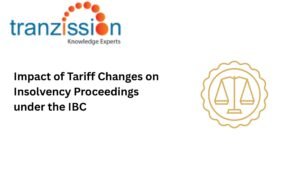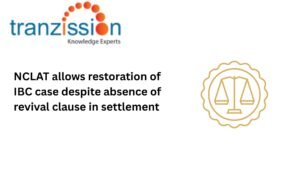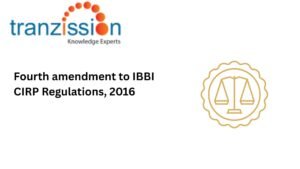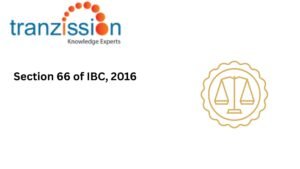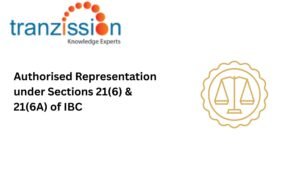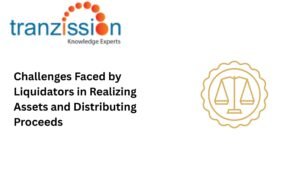
Claims Against Insolvency Practitioners
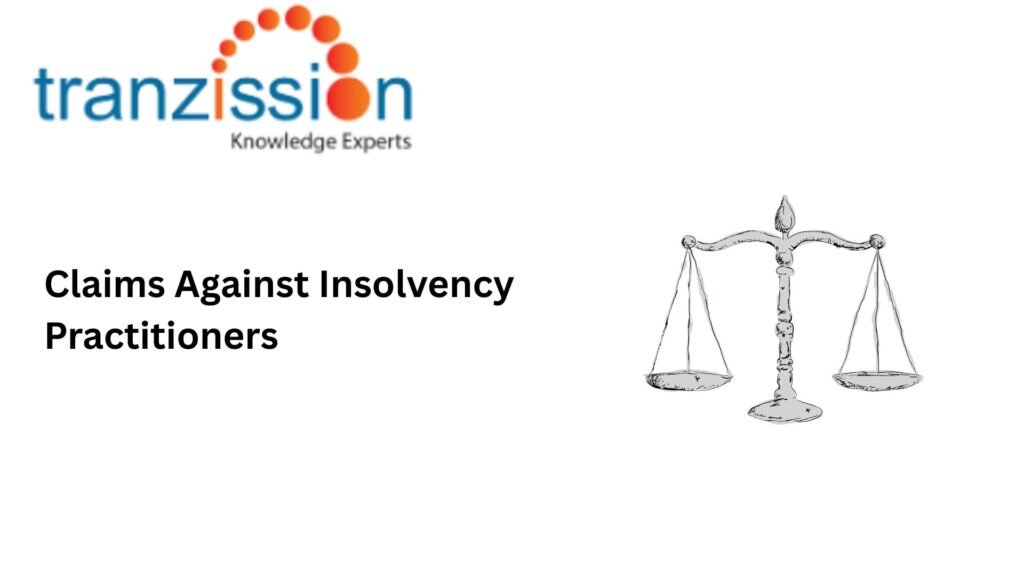
Table of Contents
Stakeholders, including creditors and directors, might pursue Claims Against Insolvency Practitioners for various reasons, primarily related to breaches of duty or misconduct during the insolvency process. IPs, in turn, owe a range of professional duties to stakeholders, including duties of care, diligence, and impartiality, as well as specific obligations related to managing assets, handling claims, and conducting the insolvency process fairly and transparently.
Who Can File a Claim?
The Insolvency and Bankruptcy Code, 2016 (the IBC) allows various parties to file Claims Against Insolvency Practitioners, including creditors, debtors, directors, shareholders, and employees. There are limitations, especially regarding individual or estate claims, depending on the type of claim. In cases where a person has died, Claims Against Insolvency Practitioners may need to be brought by the estate, represented by an executor or administer rather than by the deceased individual directly. Specific rules regarding the representation of a deceased person’s estate vary by jurisdiction. However, a party must have standing to sue, meaning they must have a direct and legally recognised interest in the outcome of the case. For instance, a creditor must demonstrate a debt owed to them by the debtor.
Legal Duties and Standards of Care
As per the decision in Re Charnley Davies Ltd (No 2), IPs must act with the care of a reasonably skilled insolvency professional. The Code of Conduct under the First Schedule of the Insolvency and Bankruptcy Board of India (Insolvency Professionals) Regulations, 2016 (IP Regulations) requires IPs to meet specific standards of conduct, and failure to do so can result in liability for breach of duty, causation of loss, and subsequent damages. This duty arises from their appointment as an IP and the obligations under the IBC, such as managing the affairs of the corporate debtor, convening meetings, and ensuring compliance with the IBC.
Read more : What is the purpose of AFA for Insolvency professionals?
Common Types of Claims Against Insolvency Practitioners
IPs can face various Claims Against Insolvency Practitioners due to their role in financial distress situations:
- Professional Negligence: This involves a failure by the IP to exercise the standard of care and diligence expected of them in their professional capacity, such as failing to properly investigate the debtor’s affairs, inadequately valuing assets, or making poor decisions that negatively impact creditors.
- Misleading or Deceptive Conduct and Statutory Breach: This arises when an IP makes false or misleading statements, or engages in conduct that is likely to mislead or deceive stakeholders, such as creditors or the debtor. For instance, misrepresenting the financial position of the debtor, concealing assets, or providing inaccurate information about the insolvency process.
- Fraud, Dishonesty, or Bond Claims: These Claims Against Insolvency Practitioners involve allegations of deliberate dishonesty, fraud, or misappropriation of assets by the IP. This can include embezzling funds, manipulating the insolvency process for personal gain, or engaging in collusive behaviour. Bonds may also be called upon to cover losses arising from these types of misconduct.
Restrictions & Procedural Barriers
Claims against IPs must adhere to the specific jurisdictional rules under the IBC. These rules ensure that any action taken against an IP is handled appropriately and with the necessary legal framework. In Hague v. Nam Tai Electronics that a liquidator’s appointment as a company’s representative can be interpreted as forum submission, meaning the liquidator agrees to be subject to the jurisdiction of the court that appointed them, according to a legal analysis site. Under the United Kingdom law, specifically Schedule B1 of the Insolvency Act, 1986, claims against former administrators are indeed restricted and often require court permission to proceed. This is part of the framework designed to protect the administrators actions while managing the company’s insolvency and to ensure an orderly process.
Time Limits and Limitation Periods
Claims against IPs are subject to limitation periods, generally requiring them to be filed within 6 years from the date the cause of action accrues, or 3 years from the date of claimant becoming aware of the cause of action, whichever is earlier. Regardless of when the cause of action arose or when the claimant the clause of action arose or when the claimant gained knowledge, a claim against an IP cannot be filed after 15 years from the date of the cause of action.
How to Assess a Claim’s Viability
To assess the viability of a claim under the IBC, it is crucial to:c
- Understand the claim’s nature, documentation, and the overall process.
- Confirm the duty, breach, causation, loss in the insolvency case.
- Use legal counsel and potentially litigation funding.
Enforcement & Remedies
If an IP fails to meet the required standard of care, which negatively impacts the insolvency process. Hence, there are several legal enforcement and remedies available:
- Creditors or other stakeholders can initiate legal proceedings against the IP to recover losses or seek other remedies.
- Courts or regulatory bodies can remove an IP from their position if they are deemed unfit to continue managing the insolvency process.
- If an IPs actions cause financial loss, they may be ordered to pay damages to compensate the affected parties.
- In some cases, a court may order the IP to take specific actions to rectify their breach of duty.
Claimant Resources & Practical Steps
When facing a legal claim, claimants should:
- Gather all relevant documents, communications, and any other information that supports the claim.
- Consult with a lawyer specializing in the relevant area of law to understand the legal options and potential outcomes.
- Be aware of any deadlines or statutes of limitations that apply to the claim. Missing these deadlines can result in the claim being barred.
- They can approach alternatives to court actions, such as mediation and arbitration.
Conclusion
If the duties of the IPs are not properly discharged, it can lead to claims against them. Balancing these duties with the need to challenge decisions responsibly requires careful navigation. Stakeholders can challenge an IPs decisions by filing complaints with the IBBI or through legal action, while IPs must adhere to a strict code of conduct and exercise professional diligence.

